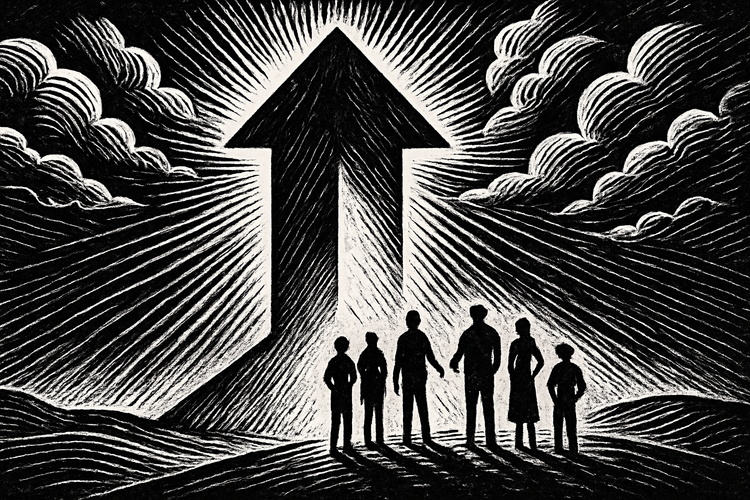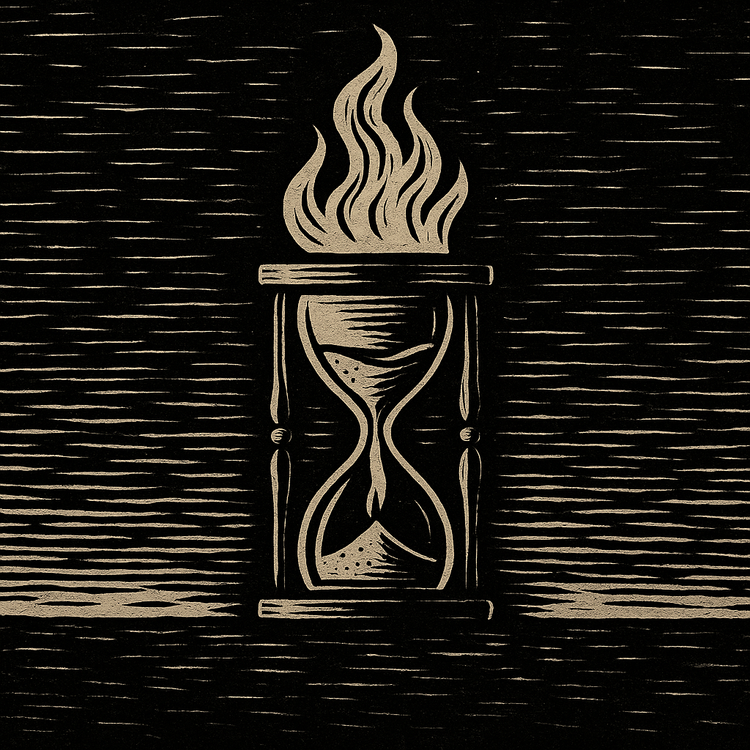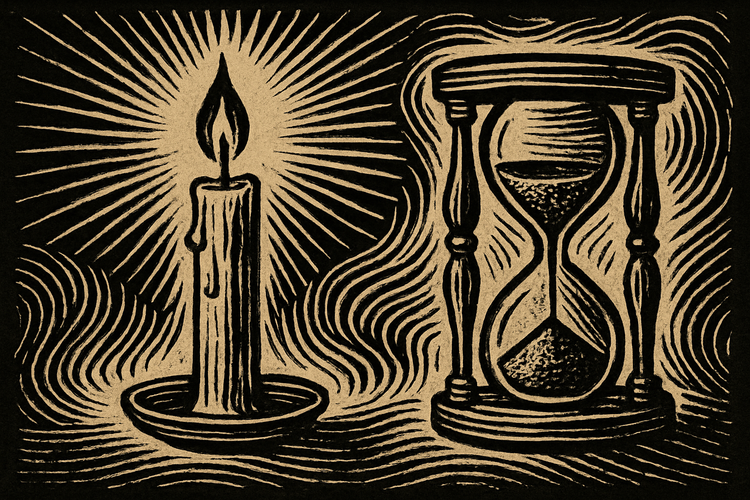Becoming Good Anyway: A Cornerstone on The Good Place S1

Spoiler Warning: This reflection contains full spoilers for The Good Place, including retrospective insights and thematic allusions. It assumes familiarity with the entire series and is written from the perspective of a rewatch.
“Everything is fine,” declares the cheerful placard in the first moments of The Good Place. But nothing is fine. Not really. Not for Eleanor Shellstrop, and not for us.
This essay marks the first Still Watching season reflection constructed as a true cornerstone—both in thematic weight and long-term significance. Season 1 of The Good Place doesn’t just introduce its characters or twist its genre. It lays emotional and philosophical groundwork for everything that follows. It’s the root system beneath the cosmic tree.
Across thirteen meticulously crafted episodes, the season constructs a shimmering illusion: a pastel neighborhood, a celestial bureaucracy, an eternal reward system built on frozen yogurt and flawless lawns. It feels like comfort, but it’s pressure dressed as peace. And in its core question—What does it truly mean to be good?—the show begins to pry apart every system, every instinct, every shortcut we might take to answer.
We meet Eleanor first in Episode 1, “Everything Is Fine”—self-centered, cynical, and keenly aware she doesn’t belong in this paradise. Her introduction is as embarrassing as her death—crass, absurd, and unmistakably human. But The Good Place is not a show about deserving. It’s about becoming. Eleanor doesn’t start out good. But she knows she’s not good. And that small, shame-tinged awareness becomes the first crack in the cosmic illusion.
Soon she’s entangled with Chidi, her supposed soulmate and a moral philosopher whose life—and afterlife—is paralyzed by overthinking. Then Tahani enters: gracious, glamorous, and quietly desperate for approval. And finally Jason, masquerading as a silent monk, but in reality a failed DJ from Jacksonville with more loyalty than sense. They’re guided by Michael, a bowtie-wearing celestial architect who seems eager to help—but who’s always watching a little too closely.
The early episodes play like a morality sitcom: Eleanor hides her secret, Chidi attempts to teach her ethics, and chaos follows in surreal bursts. In Episode 3, “Tahani Al-Jamil,” she begins to glimpse what sincere kindness might feel like. By Episode 4, “Jason Mendoza,” we learn she’s not the only imposter—and that growth, not guilt, may be the greater threat to the neighborhood’s stability.
As the season progresses, something deeper takes root. Eleanor begins to care—not out of strategy, but out of longing. She lets someone cut ahead of her in line (Episode 5, “Category 55 Emergency Doomsday Crisis”). She comforts Chidi during a breakdown. She plans a moment of beauty just to thank him. They’re small acts. Almost invisible. But they change her.
This is where the show sharpens. Because in Michael’s universe, intention matters. Good actions with selfish motives don’t earn points. Growth is punished. Effort is erased. Eleanor’s desire to change—to try—is met not with grace, but with reminders of her unworthiness. Her progress becomes fuel for the system’s resistance. This isn’t a place for improvement. It’s a place where your worst qualities are expected to define you forever.
Each character exposes a different flaw in the afterlife’s design. Chidi, who believes in virtue above all, is tormented not by his failures but by his inability to choose. Episode 10, “Chidi’s Choice,” explores his fatal indecision. He is the embodiment of Aristotle’s “golden mean” gone rigid—so afraid of doing wrong that he does nothing at all. His story is not one of cruelty, but of caution taken too far. And when it’s his hand that accidentally reboots Janet in Episode 7, “The Eternal Shriek,” his entire framework collapses.
Tahani is the image of goodness without its weight. Her charity, her grace, her endless name-dropping all mask a deep fear of being unseen. Her virtue is performative, rooted in envy and grief, not empathy. When she learns she ranks second-to-last in the neighborhood (Episode 5), her perfection unravels. Not because she doubts her actions, but because the mirror she’s built can no longer reflect her worth.
Jason—blunt, chaotic, and profoundly unserious—is the show’s strangest kind of moral test. He has no ethics, no philosophy, no self-awareness. But he is never cruel. He cares in odd, impulsive ways. And his simplicity, ironically, makes him impervious to the system’s psychological games. He’s not pretending to be good. He’s barely pretending to be anything. And in a world obsessed with judgment, that makes him oddly free.
As for Michael, his transformation is the season’s cruelest brilliance. What begins as eccentricity turns to something sharper, then sinister. The neighborhood isn’t a reward—it’s a trap. The entire experiment is a form of torture: a loop designed not just to punish, but to confuse, to dangle hope, to invite self-betrayal. The sinkhole doesn’t react to bad behavior. It reacts to progress. When Eleanor gets better, the world breaks more. Because if growth is possible, then damnation stops being inevitable. And Michael can’t allow that.
Episode 6, “What We Owe to Each Other,” draws its title from the moral philosophy of T.M. Scanlon, but it becomes something else entirely when Eleanor keeps a promise—not out of fear, but because she made it. In that moment, goodness is no longer theoretical. It’s behavioral. It’s presence. It’s care.
But even care is not enough. Episode 11, “What’s My Motivation,” makes clear that the system demands not just right actions, but right motivations. Eleanor’s good deeds don’t count because they were initially done to avoid punishment. It’s a cruel inversion: the more she tries to be better, the more proof the system gathers that she is beyond redemption.
This is where The Good Place steps beyond character drama and into something structural. The show doesn’t just question individuals. It quietly indicts any system that defines people by their worst moments, refuses the possibility of change, or confuses order with virtue. Michael’s neighborhood is a satire of punishment, yes—but it’s also a mirror held up to every institution that values purity over growth. If we define morality as a static trait, then people become fixed points—beyond rescue, beyond surprise. But if morality is a practice, a relationship, a promise we keep stumbling toward, then the system’s logic begins to crack.
Episode 13, “Michael’s Gambit,” detonates the illusion. We are in the Bad Place. We’ve been in it all along. But it doesn’t feel like hell. It feels like life—dressed up in rewards and rules, constantly whispering that your best will never be enough.
And yet. The show never gives in to despair. In a place engineered to crush hope, the humans change anyway. Eleanor confesses—not for credit, but for Chidi. Chidi defends her—not because of a philosophical theory, but because he feels it’s right. Even Tahani starts to see past her vanity. Even Jason finds someone to love. And in that defiance—in those tiny, shaky gestures of grace—the system falters.
The Good Place is a comedy. It’s a fable. It’s a puzzle box. But beneath all that, it’s a story about the choice to try, even when the world insists it won’t matter. It understands that goodness isn’t purity, or certainty, or even reward. Goodness is struggle. Goodness is presence. Goodness is owning your flaws, loving flawed people, and choosing—again and again—to stay in the fight.
Later seasons will introduce new characters, bureaucracy, the Medium Place, the Judge, and a rebooted universe. But Season 1 is the moral compass. It’s the story of why we try in the first place. Why failure matters. Why a single honest note—“Find Chidi”—can carry the weight of the entire soul.
By the end of Season 1, the memories are wiped. The experiment resets. But something survives. Because even erased, even tricked, some part of Eleanor remembers what it felt like to care. And that, the show suggests, is enough to begin again.



Comments ()